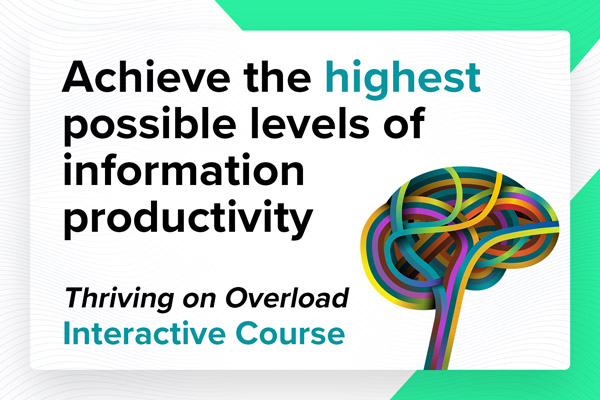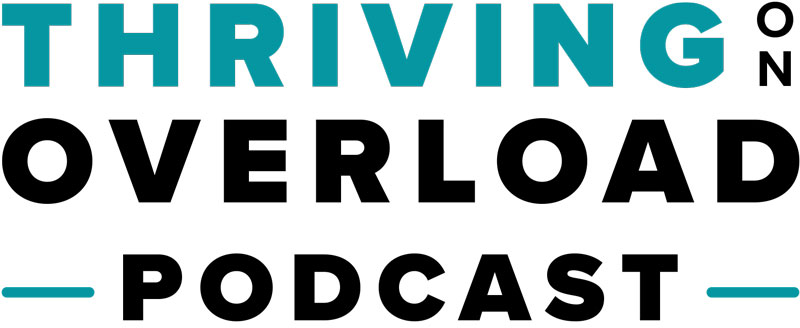An article in Fortune We can all relate to that afternoon slump. Here’s how to feel less depleted at the end of the day was based substantially on an interview with Ross Dawson.
Some excerpts from the article:
For Ross Dawson, author of Thriving on Overload: The 5 Powers for Success in a World of Exponential Information, it’s thankfully not our fault that we feel depleted. We are being overrun with content that drains us rather than energizes us at every waking hour.
“The whole world is almost designed to make us feel like we can’t keep up,” he says, adding that if we try to keep up, we may spend our whole lives doing so.
As he writes in the book, “Letting go of trying to keep up transforms crippling overload into enabling abundance.”
The first step in managing feelings of depletion is to “acknowledge that it isn’t possible to keep up with the world,” Dawson says. “At a certain point, we need to let go.”
…
“We do have to have this grace of being able to say, ‘Look, I’m human’” Dawson says. “There is almost a state of grace, of letting go, of saying, ‘I can achieve an enormous amount, and that is enough.’”
To be productive for long periods we need to take regular breaks to replenish.
“You can achieve far, far more by spending time focused [and then] taking breaks, than you would if you just power through,” Dawson says. When you can take a break and limit your attention to the patterns of your own breathing, you actually train yourself to be more mindful and therefore more focused on your next task.
One of the attention modes that he describes in his book is “deep-diving”, though he was somewhat misquoted here, it is impossible to dive deep into ideas and knowledge generation with constant notifications.
If you limit your true focused time—or deep-dive time as Dawson puts it—you’re able to maximize the time you do have. The key is to schedule that deep-dive time alongside breaks, so you’re not distracted by social media or scrolling through a site that pops up on-screen. With constant notifications, diving deep is more challenging but can prove effective.
The article includes other insights from Ross as well as other experts, read the full article here.
Image: Mohamed Nohassi







